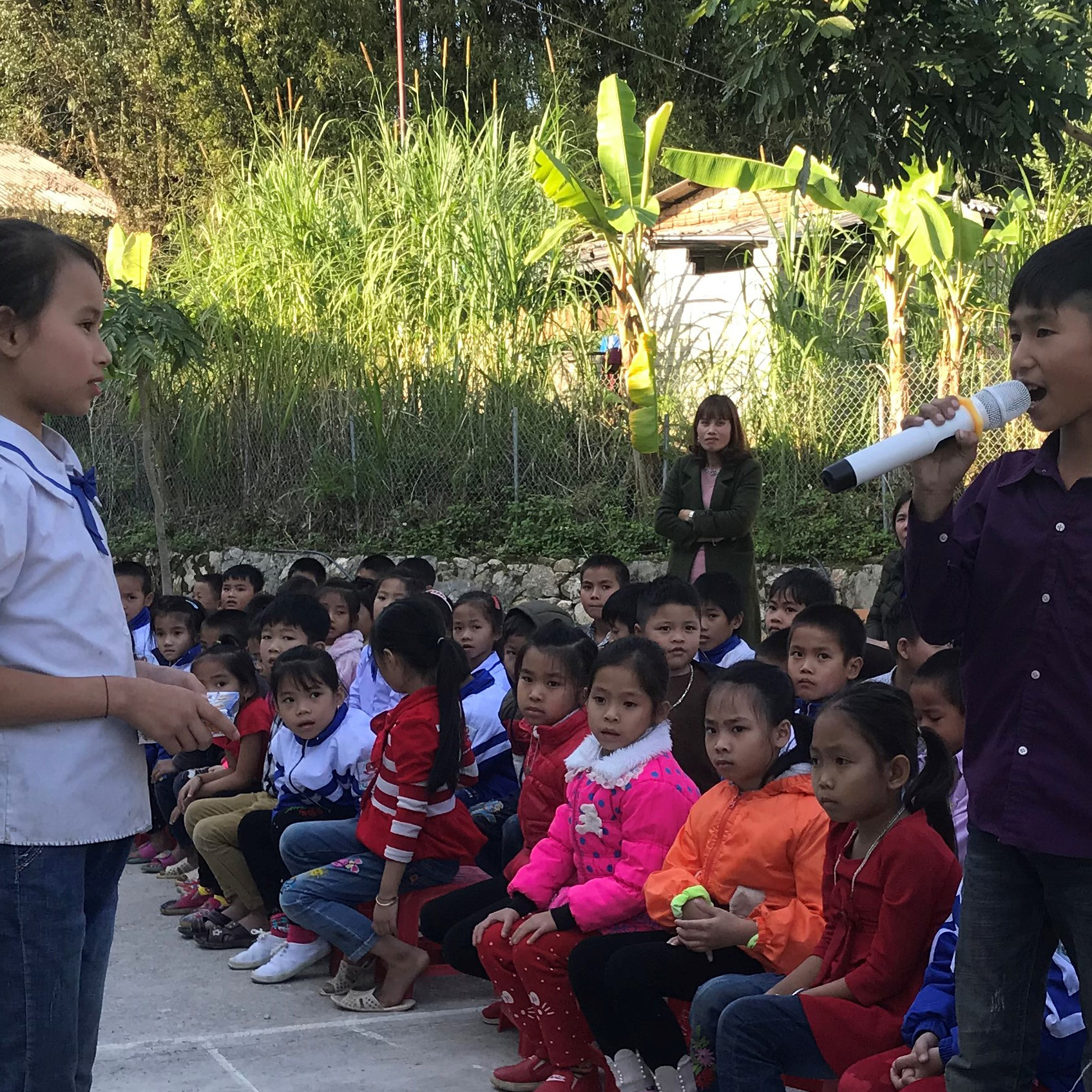Stories of Change

The student-led awareness-raising event about preventing human trafficking.
Students are taking the lead on sharing information to prevent human trafficking in Vietnam
Human trafficking is a risk in rural Vietnam, just like it is in many parts of southeast Asia. Criminal networks are strong and pervasive, as are poverty and vulnerability.
With support from the Evangelical Lutheran Church in America, our team in Vietnam partners with ethnic minority communities in northern Vietnam. We focus on a myriad of challenges, especially ones that affect children. Human trafficking is one of these challenges.
Our team has helped students learn to talk to one another about the risks and warning signs of human trafficking. “In the past, only teachers gave lectures and presentations. Since you, ‘Teacher Thang’ [as she called our CWS colleague], came and taught us, we learned how to share information among ourselves and our friends. This is a very important topic for us, so we want other students to know. When we first started to learn how to communicate with confidence, all of us were afraid or shy to stand and talk to our school mates,” says Ha Ngoc Linh, a 5th grader at Muong Kim commune Primary School.
Linh is a member of a group called the Communications Interest Group, which focuses on leading conversations with other students. “When you came to teach us, we learned how to lead awareness-raising discussions with other students,” she says.
Linh, who is the oldest of three sisters in an ethnic Thai family, worked with the other students in the after-school communications interest group to organize an information session about human trafficking risks and prevention. The students organized the session themselves, from the beginning to end. Their knowledge of the topic, and their confidence in sharing information with their peers, was impressive.
Because peer education is a new concept at her school, Linh says that some students “were laughing and trying to embarrass us.” But it was only the listeners who were uneasy. “Now that we are more confident, we look forward to leading more activities like this,” Linh says.
